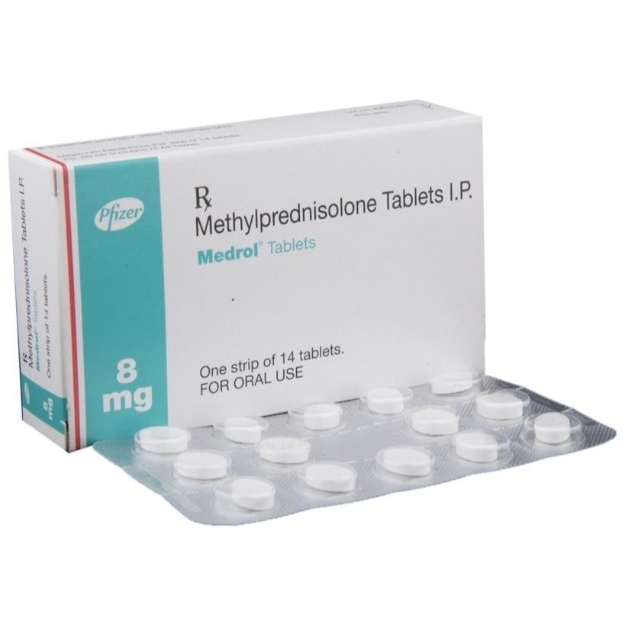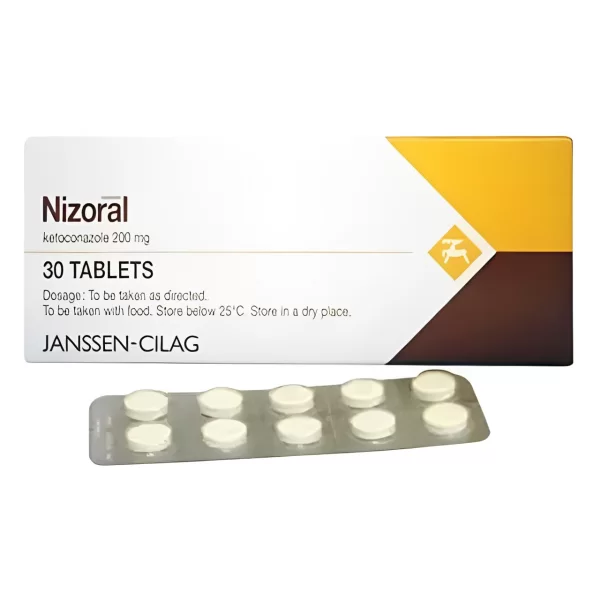
Aricept
Aricept - 10mg
| Product | Per Pill | Savings | Per Pack | Order |
|---|---|---|---|---|
| 30 pills | $1.22 | $36.68 | Buy Now | |
| 60 pills | $0.92 | $18.00 | $73.35 $55.35 | Buy Now |
| 90 pills | $0.82 | $36.01 | $110.03 $74.02 | Buy Now |
| 120 pills | $0.77 | $54.01 | $146.70 $92.69 | Buy Now |
| 180 pills | $0.72 | $90.02 | $220.05 $130.03 | Buy Now |
| 270 pills | $0.69 | $144.03 | $330.07 $186.04 | Buy Now |
| 360 pills | $0.67 | $198.04 | $440.10 $242.06 | Buy Now |
Aricept - 5mg
| Product | Per Pill | Savings | Per Pack | Order |
|---|---|---|---|---|
| 30 pills | $1.11 | $33.35 | Buy Now | |
| 60 pills | $0.91 | $12.00 | $66.69 $54.69 | Buy Now |
| 90 pills | $0.84 | $24.01 | $100.04 $76.03 | Buy Now |
| 120 pills | $0.81 | $36.01 | $133.38 $97.37 | Buy Now |
| 180 pills | $0.78 | $60.02 | $200.07 $140.05 | Buy Now |
| 270 pills | $0.76 | $96.03 | $300.10 $204.07 | Buy Now |
| 360 pills | $0.74 | $132.04 | $400.14 $268.10 | Buy Now |
Overview of Aricept (Donepezil)
Brief Description of the Drug
Aricept, also known by its generic name donepezil, is a medication used primarily to treat symptoms of Alzheimer's disease. It is an acetylcholinesterase inhibitor that works by increasing the levels of acetylcholine, a neurotransmitter involved in memory and cognition. Aricept is particularly effective in slowing the progression of cognitive decline in patients with mild to severe Alzheimer's disease.
Brief History of Development and Approval
Developed by Eisai Co., Ltd. and Pfizer Inc., Aricept received FDA approval in 1996. It has since become one of the most widely prescribed medications for Alzheimer's disease due to its proven efficacy in clinical trials. Over the years, Aricept has been extensively studied and remains a cornerstone in the treatment of Alzheimer's-related dementia.
Key Benefits and Useful Properties
List of Key Benefits
- Improves cognitive function in patients with Alzheimer's disease
- Helps manage symptoms such as memory loss, confusion, and difficulty in performing daily activities
- Enhances the quality of life for both patients and caregivers
Unique Properties of the Drug
- Long half-life, allowing for once-daily dosing, which improves patient compliance
- Available in various formulations, including tablets and orally disintegrating tablets, offering flexibility in administration
- Demonstrated efficacy in multiple stages of Alzheimer's disease, from mild to severe, making it a versatile treatment option
Effectiveness
Comparison with Similar Drugs
- Compared to other cholinesterase inhibitors like rivastigmine and galantamine, Aricept has a more favorable side effect profile and is generally better tolerated
- Studies have shown that Aricept can lead to significant improvements in cognitive function and daily living activities, often surpassing the efficacy of other similar medications
- Aricept's ability to improve symptoms and slow progression has been confirmed through numerous clinical trials and real-world use, making it a preferred choice among healthcare providers
Safety and Tolerability
General Information on Safety and Tolerability
- Aricept is generally well-tolerated, with the most common side effects being gastrointestinal issues such as nausea, diarrhea, and vomiting, as well as insomnia and muscle cramps
- Serious adverse effects are rare but can include bradycardia (slow heart rate), syncope (fainting), and severe muscle cramps. Patients should be monitored regularly to manage these potential risks
- The overall safety profile of Aricept makes it suitable for long-term use in the management of Alzheimer's disease, though regular follow-up with healthcare providers is essential to ensure optimal treatment outcomes
Indications for Use
Diseases and Conditions Treated by Aricept
- Alzheimer's disease (mild, moderate, and severe stages)
- Dementia associated with Alzheimer's disease
Description of Each Disease and Condition
- Alzheimer's disease is a progressive neurodegenerative disorder characterized by memory loss, cognitive decline, and behavioral changes. It is the most common cause of dementia in older adults
- Dementia associated with Alzheimer's disease encompasses a range of symptoms affecting memory, thinking, and social abilities severely enough to interfere with daily functioning
- Aricept helps by increasing acetylcholine levels in the brain, which can improve communication between nerve cells and alleviate some symptoms of the disease. This leads to better cognitive function and an improved ability to carry out daily activities
Main Symptoms and Indications
- Memory loss, which is often one of the first symptoms of Alzheimer's disease
- Confusion and difficulty with thinking and reasoning, impacting problem-solving and planning abilities
- Challenges in performing daily activities such as managing finances, cooking, and personal hygiene
- Behavioral changes, including increased irritability, anxiety, and depression
Description of How the Drug Helps with These Symptoms
- By inhibiting the enzyme acetylcholinesterase, Aricept increases acetylcholine levels, enhancing cholinergic function in the brain
- This improvement in neurotransmitter availability helps reduce symptoms of cognitive decline, such as memory loss and confusion, and enhances overall mental function
- As a result, patients may experience improved communication, better performance in daily activities, and a reduction in behavioral issues, leading to an overall improvement in quality of life
Dosage and Administration
Dosage and Intake
Recommended Dosage for Adults
- The usual starting dose is 5 mg once daily, taken at bedtime
- Based on clinical response and tolerability, the dose may be increased to 10 mg once daily after 4-6 weeks. Some patients may benefit from an increase to 23 mg daily for more severe symptoms
Recommended Dosage for Children
- Aricept is not typically recommended for use in children. Its safety and efficacy have not been established in pediatric populations
Special Dosage Considerations for Elderly Patients or Patients with Comorbidities
- Elderly patients and those with liver impairment may require careful monitoring and dosage adjustments to avoid adverse effects
- It is crucial to start at the lower end of the dosing range and adjust gradually based on patient response and tolerability
Time of Intake
Optimal Time of Intake (Morning, Afternoon, Evening)
- Aricept is usually taken once daily at bedtime to minimize the risk of side effects such as nausea and dizziness
Frequency of Intake (Once Daily, Twice Daily, etc.)
- Once daily
Effect of Food Intake on Drug Efficacy
- Aricept can be taken with or without food. However, taking it with food may help reduce gastrointestinal side effects, such as nausea and stomach upset
Additional Recommendations
Special Instructions for Intake (e.g., with Water)
- Aricept tablets should be taken with a full glass of water to ensure proper swallowing and absorption
- For orally disintegrating tablets, allow the tablet to dissolve on the tongue and then swallow with or without water
Mechanism of Action
Description of the Mechanism of Action
Primary Mechanism of Action
- Aricept inhibits the enzyme acetylcholinesterase, preventing the breakdown of acetylcholine
- This leads to increased levels of acetylcholine in the brain, enhancing cholinergic transmission
Molecular and Cellular Targets
- The primary target of Aricept is acetylcholinesterase, an enzyme that breaks down acetylcholine at synaptic junctions in the brain
Biochemical Processes
Impact on Metabolic Pathways
- By inhibiting acetylcholinesterase, Aricept increases acetylcholine levels, which enhances cholinergic neurotransmission and improves cognitive function
Changes in Biochemical Indicators in the Body
- Increased acetylcholine levels in the brain lead to improved communication between neurons, which is crucial for memory and learning
Physiological Effects
Impact on Organ and System Functions
- Aricept primarily affects the central nervous system by improving cholinergic function, leading to enhanced memory, cognition, and overall brain function
Expected Therapeutic Effects
- Improvement in cognitive function
- Slowing of symptom progression in Alzheimer's disease
- Better management of daily living activities
Composition
Active Ingredients
Primary Active Ingredient
- Donepezil hydrochloride
Mechanism of Action of the Active Ingredient on the Body
- Donepezil hydrochloride works by inhibiting acetylcholinesterase, thereby increasing acetylcholine levels in the brain, which enhances communication between neurons and improves cognitive function
Role of the Active Ingredient in Treatment
- The active ingredient helps manage symptoms of Alzheimer's disease by improving neurotransmitter levels, leading to better memory and cognitive function
Excipients
Complete List of Excipients
- Lactose monohydrate
- Corn starch
- Microcrystalline cellulose
- Hydroxypropyl cellulose
- Magnesium stearate
- Talc
- Polyethylene glycol
Function of Each Excipient
- Lactose monohydrate: Filler
- Corn starch: Disintegrant
- Microcrystalline cellulose: Binder
- Hydroxypropyl cellulose: Binder
- Magnesium stearate: Lubricant
- Talc: Anti-caking agent
- Polyethylene glycol: Solubilizer
Impact of Excipients on the Drug
- Excipients ensure the stability, efficacy, and manufacturability of the drug
- They enhance the bioavailability of the active ingredient and improve the overall patient experience by making the medication easier to ingest
Side Effects
General Introduction
Understanding potential side effects is crucial for safe and effective use of Aricept. While the medication is generally well-tolerated, being aware of possible adverse reactions can help manage and mitigate risks.
Potential Side Effects
Common Side Effects
- Nausea
- Diarrhea
- Insomnia
- Muscle cramps
- Fatigue
Less Common Side Effects
- Vomiting
- Loss of appetite
- Weight loss
- Frequent urination
Serious Side Effects
- Bradycardia (slow heart rate)
- Syncope (fainting)
- Gastrointestinal bleeding
- Seizures
Frequency and Severity
Common Side Effects
- These effects are generally mild to moderate in severity and often resolve as the body adjusts to the medication
Less Common Side Effects
- May require medical attention if they persist or worsen
Serious Side Effects
- Require immediate medical intervention
- Patients experiencing these should stop taking Aricept and seek emergency help
Prevention of Side Effects
General Introduction
Preventing side effects can enhance patient compliance and the overall effectiveness of the treatment. Proactive measures and lifestyle adjustments can mitigate many common adverse reactions.
Tips for Preventing Side Effects
Basic Preventive Measures
- Follow the prescribed dosage strictly and avoid abrupt discontinuation
- Monitor and report any unusual symptoms to your healthcare provider immediately
Recommendations for Improving Drug Tolerance
- Take Aricept with food to reduce gastrointestinal discomfort
- Stay hydrated and maintain a balanced diet to support overall health
- Incorporate regular physical activity to help manage fatigue and muscle cramps
Contraindications
General Introduction
Understanding contraindications is essential to avoid potentially harmful situations and ensure safe medication use.
Conditions and Diseases Where Aricept is Contraindicated
List of Conditions
- Hypersensitivity to donepezil or any of its excipients
- Severe liver impairment
- Pregnancy and lactation without medical supervision
- History of gastrointestinal bleeding or ulcers
Description of Each Condition
- Hypersensitivity: Risk of severe allergic reaction
- Liver impairment: Potential for increased adverse effects due to decreased metabolism
- Pregnancy and lactation: Potential risks to the fetus or infant. Always consult a healthcare provider before use
- Gastrointestinal issues: Increased risk of exacerbating existing conditions
Warnings/Precautions
General Introduction
Following precautions can minimize risks and enhance the therapeutic benefits of Aricept. Awareness and adherence to these guidelines are crucial.
Important Warnings
Potential Risks and Situations Requiring Increased Attention
- Bradycardia: Monitor heart rate regularly
- Gastrointestinal bleeding: Use with caution in patients with a history of ulcers
- Seizure risk: Patients with a history of seizures should use Aricept cautiously
Mild Cognitive Impairment
- Patients with mild cognitive impairment should be monitored closely for any changes in behavior or mood
Precautionary Measures
Recommendations for Preventing Negative Effects
- Inform your healthcare provider of any pre-existing conditions or other medications you are taking
- Avoid alcohol as it may exacerbate side effects
- Schedule regular follow-up appointments to monitor the drug’s effects and adjust the dosage if necessary
Missed Dose
What to Do If a Dose is Missed
Immediate Actions to Take
- If you miss a dose, take it as soon as you remember
- If it is almost time for your next dose, skip the missed dose and resume your regular schedule. Do not double the dose to catch up
Handling Missed Doses
- Maintain a consistent routine to minimize missed doses
Tips for Maintaining Dosing Schedule
Recommendations for Reminders and Planning
- Use a medication reminder app or set an alarm
- Keep a medication schedule in a visible place
- Consider using a pill organizer to help keep track of doses
Drug Interaction
Introduction
Understanding drug interactions helps in preventing adverse effects and enhancing therapeutic efficacy. It is important to discuss all medications with your healthcare provider.
Examples of Interactions
List of Drugs That May Interact with Aricept
- Nonsteroidal anti-inflammatory drugs (NSAIDs)
- Anticholinergics
- Antifungal medications (e.g., ketoconazole)
- Antidepressants (e.g., SSRIs)
Description of Potential Effects
- NSAIDs: Increased risk of gastrointestinal bleeding
- Anticholinergics: Reduced effectiveness of Aricept
- Antifungals: Increased levels of Aricept in the blood, leading to potential toxicity
- Antidepressants: Possible increased risk of side effects such as dizziness and confusion
How to Avoid Negative Interactions
Recommendations for Safe Drug Use
- Inform your healthcare provider of all medications you are taking, including over-the-counter drugs and supplements
- Avoid starting or stopping any medication without consulting your healthcare provider
- Regularly review all medications with your healthcare provider to manage and adjust for potential interactions
Overdose
Symptoms of Overdose
Description of Main Symptoms
- Severe nausea and vomiting
- Excessive drooling
- Sweating and bradycardia
- Respiratory depression
- Seizures
Distinction Between Mild and Serious Symptoms
- Mild: Gastrointestinal discomfort, headache
- Serious: Severe muscle weakness, loss of consciousness, and respiratory issues
Actions to Take in Case of Suspected Overdose
Immediate Measures
- Call emergency services immediately
- Administer activated charcoal if advised by a healthcare provider
When and How to Seek Medical Help
- Seek immediate medical attention if overdose symptoms are severe
- Provide detailed information about the dosage and timing of Aricept intake to healthcare professionals
Pharmacokinetics
Absorption
Rate and Extent of Absorption
- Aricept is well absorbed after oral administration
- Peak plasma concentrations are reached within 3-4 hours
Factors Affecting Absorption
- Food does not significantly affect absorption, making it flexible for dosing with or without meals
Distribution
Distribution in the Body
- Aricept is widely distributed throughout the body, including the brain
- It has a high binding affinity to plasma proteins
Metabolism
Primary Metabolic Pathways
- Metabolized in the liver via CYP450 enzymes, primarily CYP3A4 and CYP2D6
- Produces both active and inactive metabolites
Impact of Metabolic Processes on Drug Efficacy
- The metabolism of Aricept affects its duration of action and elimination from the body
Elimination
Primary Routes of Elimination
- Excreted in urine, primarily as metabolites
- Small amounts are excreted in feces
Half-Life and Factors Influencing Elimination
- The elimination half-life of Aricept is approximately 70 hours, allowing for once-daily dosing
- Liver function can significantly impact the rate of elimination
Dosage Forms
Available Forms and Dosages of the Drug
List of Available Forms
- Tablets: 5 mg and 10 mg
- Orally disintegrating tablets: 5 mg and 10 mg
- Extended-release tablets: 23 mg
Advantages of Each Form
- Tablets: Easy to swallow and stable formulation
- Orally disintegrating tablets: Convenient for patients with difficulty swallowing, dissolve quickly on the tongue
- Extended-release tablets: Provide a higher dose for severe symptoms with a once-daily administration
Pregnancy and Breastfeeding
Safety of Use
Assessment of Risks for Mother and Child
- Aricept is categorized as Pregnancy Category C. This indicates that risk cannot be ruled out and that the drug should only be used if the potential benefits justify the potential risks to the fetus
- Limited data on the use of Aricept during pregnancy make it necessary to weigh the benefits against potential risks carefully
- It is not known whether donepezil is excreted in human milk, and caution should be exercised when administered to breastfeeding mothers
Research Data on Effects During Pregnancy and Breastfeeding
- Animal studies have shown adverse effects on the fetus at high doses, but there are no well-controlled studies in pregnant women
- Due to the potential for serious adverse reactions in nursing infants, a decision should be made whether to discontinue nursing or to discontinue the drug, taking into account the importance of the drug to the mother
Recommendations for Pregnant and Nursing Mothers
Guidelines for Drug Use During Pregnancy
- Use Aricept only if clearly needed and prescribed by a healthcare provider
- Regular monitoring and consultation with a healthcare provider are crucial to manage any potential risks
Instructions for Use During Breastfeeding
- Consult a healthcare provider before using Aricept while breastfeeding
- Consider alternative treatments if possible
- If Aricept is deemed necessary, monitor the infant for any adverse effects and consult a pediatrician regularly
Storage Conditions
Recommendations for Storing the Drug
General Storage Recommendations
- Store Aricept at room temperature, between 20-25°C (68-77°F)
- Keep the medication in its original container, tightly closed
Place of Storage
- Store in a dry place away from moisture and light
- Keep out of reach of children and pets
Temperature and Other Storage Conditions
Recommended Temperature for Storage
- Maintain a stable temperature to ensure the efficacy and longevity of the medication
- Avoid storing in places with extreme temperature fluctuations, such as bathrooms or near kitchen sinks
Protection from Light, Moisture, and Other Factors
- Protect Aricept from direct sunlight and moisture to prevent degradation
- Ensure the medication is stored in a well-ventilated area
Shelf Life and Storage Conditions After Opening
- Check the expiration date on the packaging and do not use the medication beyond this date
- Follow any specific storage instructions provided by the pharmacist or healthcare provider after opening the medication
Clinical Trials and Efficacy
Overview of Clinical Trials
Brief Description of Conducted Clinical Trials
- Aricept has undergone extensive clinical trials to evaluate its efficacy and safety in treating Alzheimer's disease
- Studies include randomized, double-blind, placebo-controlled trials involving patients with mild, moderate, and severe Alzheimer's disease
Methods and Design of Studies
- Trials typically assess cognitive function, daily living activities, and global clinical status using standardized scales
- Participants are monitored for both therapeutic effects and adverse reactions over extended periods
Main Results and Conclusions
Efficacy Indicators
- Significant improvements in cognitive function scores compared to placebo
- Enhanced ability to perform daily living activities
- Slower progression of Alzheimer's symptoms
Comparison with Other Drugs
- Demonstrated superior efficacy compared to placebo in multiple studies
- Comparable or better outcomes than other cholinesterase inhibitors, such as rivastigmine and galantamine
Conclusions
- Clinical trials confirm Aricept's role as an effective treatment for Alzheimer's disease, improving cognitive function and quality of life
- Ongoing research continues to support its use in various stages of the disease, providing a robust evidence base for its clinical application
Conclusion
Summary of All Key Aspects of Aricept
Key Highlights
- Aricept is effective in treating symptoms of Alzheimer's disease, improving cognitive function, and enhancing the quality of life for patients and caregivers
- It is well-tolerated, with a favorable safety profile, making it suitable for long-term use
- The drug's versatility in treating mild, moderate, and severe stages of Alzheimer's disease makes it a valuable therapeutic option
Recommendations for Optimizing Therapy
Tips for Enhancing Treatment and Improving Efficacy
- Adhere strictly to the prescribed dosage and timing to maximize therapeutic benefits
- Regularly monitor for side effects and report them promptly to your healthcare provider
- Maintain open communication with your healthcare provider to adjust treatment plans as needed
Final Conclusion
- Aricept is a valuable treatment option for managing Alzheimer's disease, offering significant benefits in terms of cognitive improvement and daily functioning
- With proper use and monitoring, Aricept can significantly enhance the quality of life for both patients and caregivers, making it a cornerstone in Alzheimer's disease management.




